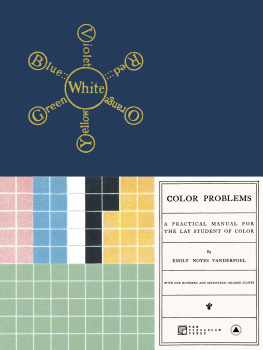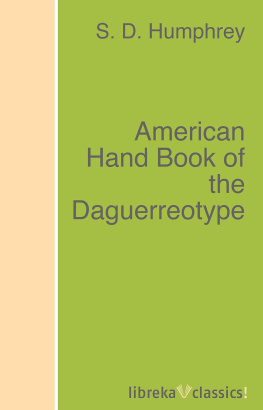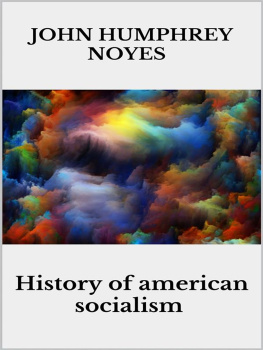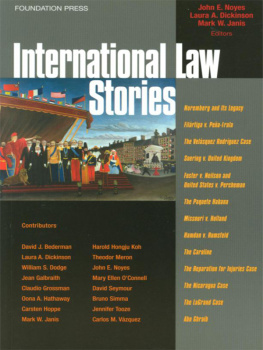This edition is published by PICKLE PARTNERS PUBLISHINGwww.pp-publishing.com
To join our mailing list for new titles or for issues with our bookspicklepublishing@gmail.com
Or on Facebook
Text originally published in 1935 under the same title.
Pickle Partners Publishing 2016, all rights reserved. No part of this publication may be reproduced, stored in a retrieval system or transmitted by any means, electrical, mechanical or otherwise without the written permission of the copyright holder.
Publishers Note
Although in most cases we have retained the Authors original spelling and grammar to authentically reproduce the work of the Author and the original intent of such material, some additional notes and clarifications have been added for the modern readers benefit.
We have also made every effort to include all maps and illustrations of the original edition the limitations of formatting do not allow of including larger maps, we will upload as many of these maps as possible.
A YANKEE SAINT:
JOHN HUMPHREY NOYES AND THE ONEIDA COMMUNITY
BY
ROBERT ALLERTON PARKER
Chapter I: POLLY HAYES
From dust I rise,
And out of nothing now awake;
These brighter regions which salute mine eyes,
A gift from God I take.
The earth, the seas, the light, the lofty skies,
The sun and stars are mine, if these I prize.
A stranger here
Strange things doth meet, strange glory see;
Strange treasures lodged in this fair world appear,
Strange all and new to me;
But that they mine should be, who nothing was,
That strangest is of all, yet brought to pass.
TRAHERNE.
CAPTAIN BLAKESLEY of New Haven bought the meadow-land west of Brattleboro. His four sons sent a letter south, urging their friend Rutherford Hayes to come up for a visit. One bitter day in February, 1778, this lanky, raw-boned youth of twenty-one arrived at the little frontier settlement.
The Blakesleys and their neighbors hailed the coming of this muscular young man, who had some training in blacksmithing; Brattleboro was in sore need of a smith. The Blakesley boys described to the newcomer the delights and excitement of life in the Green Mountainshunting, fishing, trapping, sledding. He was not going to spend the rest of his life in the backwoods, Rutherford retorted. But the men of Brattleboro paid little attention to his protest. Before young Hayes fully realized what was happening, they had organized a bee. All the men of the little community gathered with their pikepoles. They cleared away the deep snow, and soon the young giant from New Haven was taking an active part in the raising of a smithy. Skillfully they framed and fitted the hewn parts together. Then, with a great shout, they lifted the ponderous bents into the air. Tenons slipped into their places in the mortises. Sturdy young men shinned up the newly hoisted bents. Deep draughts from stone jugs seemed to double their agility and daring, as they handled the newly-cut rafters and drove pins into the braces. If, toward the conclusion of the bee, tongues grew a bit thick, no one doubted the necessity of good liquor and joviality for the successful and rapid accomplishment of a raising. At last, the whole structure stood solidly and steadily upright.
The frame of Rutherford Hayess shop had been pinned, not spiked togetherfor nails were still a scarcity. That was one reason Brattleboro needed a blacksmith. Less than a month after his arrival, sparks were flying from his anvil. A dirty, black business! he used to cry, half-apologetically, but it does bring in white money!
Young Hayes found lodging with the Smiths, a family which had come to the wilderness from Hadley, Massachusetts. The eldest of the nine Smith children was Chloe, a girl of sixteen. Hard-working, obedient, cheerful, she was already inured to the hardships of frontier life. Her grave, appealing countenance drove all thoughts of returning to New Haven from the mind of Rutherford Hayes. They were married the following yearin 1779. Chloe was eighteen when their first child was born. It was a little girl, and they named her Polly.
In physical endurance Chloe Hayes was a fitting companion for her brawny husband. In willpower, neighbors testified, she was even more indomitable. Not long after the birth of Polly, an opportunity to take over the management of a tavern near West Brattleboro, at a point where the pike turned west over the green hills to Marlboro, was offered to the young couple. They named it the Hayes Tavern; but soon it was known in the neighborhood of Brattleboro as the Big House. How proud the young Hayeses were of its fourteen great fireplaces! The largest of them all, with its long, blackened crane, and its spacious Dutch ovens for roasting meat and fowls, roared in the cellar. There, under the rafters of a low-beamed ceiling, Mrs. Hayes established an undisputed reputation as the first cook in southern Vermont.
A noisy brood of little Hayeses, as the years passed, gathered like chicks about her busy petticoats. Upstairs to bed they were sent before the crowd in the great taproom to the right of the wide hallway became noisy. How merry was the ballroom on the second floor of the Big House, when the whole countryside gathered to celebrate the admission of Vermont as the fourteenth State of the Union! A bar-cupboard opened off this ballroom, and, there, on such festive occasions, Chloe Hayes officiated. She could wait on the guests of these tavern balls all night, and start out the next morning on horseback, with her husband, on a two-hundred-mile trip to Bainbridge, in Chenango County, New York, to visit the elder Smiths.
Late every Saturday afternoon, Mrs. Hayes pushed her work-basket as far as she could under the high, four-poster bed, so that she might not be tempted by it over the Sabbath. Every Saturday evening at sunset, the wooden shutters of the public rooms were drawn. No refreshments were served again until Monday morning. Like the rest of the good folk of Brattleboro and its countryside, the Hayeses obeyed the Sabbath laws with unflinching rigidity. They recognized their need for the protection of God. The loneliness of the wilderness, the rigors of frontier life, the wolves that howled in the forestshad not Catherine Mason of Bennington been eaten by a pack of wolves on her way home from an evening of merry-making?such menaces as these taught the imminence of death and the necessity for an assured and divine protector.








